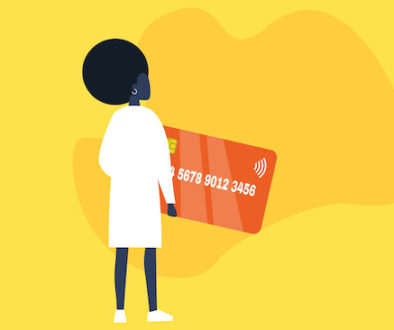How to Best Your Budget When Starting a New Family
Let’s start with a truth that no one puts on the pastel-colored greeting cards: starting a family is a beautiful, glorious, terrifying earthquake that will shake your life to its foundations.
Whether you just got married and are marveling at how your partner loads the dishwasher all wrong, or you’re staring at a tiny, miraculous human who seems to only communicate in screams at 3 a.m., your world has fundamentally changed. The love is bigger. The future is brighter. And the fear? Well, that can get a whole lot bigger, too.
And so often, that fear has a name: Money.
It’s the silent stressor in the room. It’s the argument that’s not really about who forgot to buy milk, but about the stack of bills on the counter. It’s that late-night, stomach-twisting feeling as you stare at the ceiling, wondering, “How are we going to make this all work?”
If any of this sounds familiar, I want you to take a deep breath and let it out. You are not broken, and you are not alone. This is the part of the journey that doesn’t make the Instagram feed. But navigating this new financial reality isn’t about building a prison of spreadsheets and deprivation. It’s about grabbing the steering wheel of your life, together. It’s about turning a source of anxiety into a tool for building your dreams.
So let’s talk. No jargon, no judgment. Just a real conversation about how to handle your money without losing your minds.
The Kitchen Table Summit: How to Talk Money Without Throwing Dishes
Before you can even think about a budget, you have to do the single hardest and most important thing: talk about it. Really, truly talk about it.
For most of us, this feels like walking into a minefield. We all have a “money story” we learned as kids. Maybe your parents fought about money constantly, so now you avoid it at all costs. Maybe your family never had enough, so you hoard every penny in fear. Maybe you were taught that money is a private, almost shameful thing you just don’t discuss.
Your partner has their own story. And when these two unread stories collide, you get friction. The classic “spender vs. saver” conflict isn’t a character flaw; it’s a clash of unexamined histories.
So, you need a summit. A Kitchen Table Summit. Schedule it. Put it on the calendar. This isn’t an argument to be had when you’re both exhausted and stressed. This is a date. Pour a glass of wine or make a pot of tea. The only rules are honesty and zero judgment.
Start with the softballs. Then go deeper.
- “What did you learn about money growing up?”
- “What’s your biggest financial fear?”
- “If we had more than enough money, what would you want our life to look like in five years?”
- “Is there any debt or financial secret you’ve been afraid to tell me about?” (This one is scary, but it’s the key to true partnership. You can’t fight an enemy you can’t see.)
This conversation is the foundation for everything. It’s where you stop being two individuals managing finances and start becoming a single team with a shared vision.
Forget the “B” Word: Designing Your Family’s Cash Flow Plan
I hate the word “budget.” It tastes like deprivation and misery. Let’s call it a cash flow plan, a spending plan, or a “freedom plan.” Because that’s what it is: a plan to create the freedom to live the life you want.
Step 1: The Ugly-But-Necessary Forensic Audit. For one month, you need to become a financial detective. Your mission is to find out where every single dollar is going. Use an app, a spreadsheet, or a dog-eared notebook—the tool doesn’t matter. The act of tracking does. It’s a no-judgment fact-finding mission. You might be horrified to discover you spent $300 on takeout or that a handful of forgotten subscriptions are bleeding you dry. Don’t despair. This isn’t a report card; it’s a map of where you are right now. You can’t get to where you’re going if you don’t know your starting point.
Step 2: Give Every Dollar a Name. This is the magic of the zero-based plan. You take your total monthly income, and you give every single dollar a job before the month even begins.
Your Monthly Income - (Bills + Savings + Debt + Spending) = $0
It sounds complicated, but it’s just planning. You’re deciding on purpose how much goes to rent, how much goes to groceries, how much you’ll throw at that credit card debt, and—this is critical—how much you each get for guilt-free personal spending. This “fun money” is the pressure-release valve that makes the whole system work. It’s your money to spend on whatever you want without having to justify it. It buys you freedom and prevents resentment.
The Stork and The Bill: A Brutally Honest Look at Baby Costs
If you’re expecting a baby, congratulations! Now, let’s talk about the financial tsunami heading your way. The sticker shock is real, my friend.
The costs come in waves. First, it’s the one-time hit: the crib, the ridiculously expensive car seat, the stroller that costs more than your first car. But then comes the relentless, ongoing drip… drip… drip of diapers, wipes, formula, and clothes they outgrow in six weeks.
And the monster under the bed? Childcare. In many places, a month of daycare costs more than a mortgage payment. This is a number you need to research early and stare in the face. It will likely be the single biggest factor in shaping your family’s finances for the next five years.
Here’s how you fight back:
- Embrace the Hand-Me-Down. Your baby does not care about brand names. They will spit up on a $100 designer onesie just as effectively as a $5 one. Friends, family, and local parent groups are your new best friends.
- Question the Gadgets. The baby industry is brilliant at selling fear and convenience to exhausted parents. You do not need a smart bassinet, a Wi-Fi-enabled wipe warmer, or a special machine that brews the perfect bottle. Love, milk, and a safe place to sleep. Start there.
- Plan for the Income Dip. If one or both of you are taking parental leave, that income change can be a shock. For a few months before the baby comes, try a “dress rehearsal.” Attempt to live on what your post-baby income will be and aggressively save the rest. It’s a trial by fire that will build an incredible cash cushion.
The ‘In Case Life Goes Sideways’ Plan: Your Financial Fortress
This is the boring stuff that feels morbid but is actually the most profound act of love you can engage in. It’s about protecting your family from chaos if life throws a devastating curveball.
- Your Emergency Fund: This is a separate savings account with 3 to 6 months of essential living expenses. It’s your buffer against a job loss, a medical crisis, or a sudden car transmission failure. It stops a bad situation from becoming a catastrophic one. Don’t be intimidated by the big number. Start with a goal of $1,000. Set up an automatic transfer of $50 a week. You’ll be amazed at how fast it grows. This fund is your peace of mind.
- A Will: This is a non-negotiable for parents. If you don’t have a will, you don’t get to decide who raises your child if you’re gone. A judge will. Read that again. It’s an easy and relatively inexpensive process. Get it done.
- Term Life Insurance: If anyone depends on your income, you need this. It’s shockingly cheap when you’re young and healthy. It’s a policy that says, “If I’m not here to provide for my family, this money will be.” It will pay off the mortgage, fund their education, and give your partner breathing room to grieve without panicking about bills. It’s the ultimate love letter.
The Finish Line is a Myth: Give Yourselves Grace
You will mess this up.
There will be a month where you blow the grocery budget. There will be an unexpected expense that throws you off track. You will have an argument about money. It’s okay.
This isn’t a one-time fix; it’s a lifelong practice. The goal isn’t perfection; it’s progress and partnership. Have a quick 15-minute check-in every payday. Celebrate your wins—like paying off a credit card or finally hitting that $1,000 emergency fund goal.
You’re a team. You’re building a life. And that’s a messy, beautiful, and expensive process. But by facing it with honesty, teamwork, and a solid plan, you give yourselves the greatest gift of all: the freedom to focus on what truly matters.
You’ve got this.



